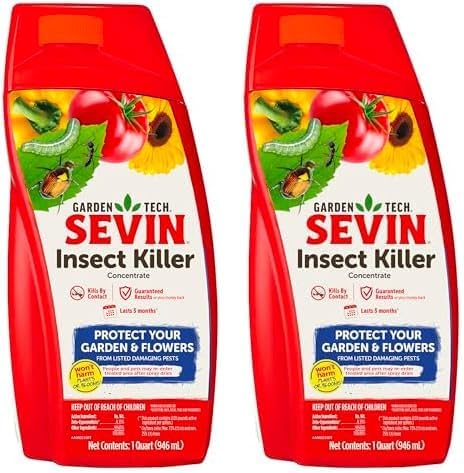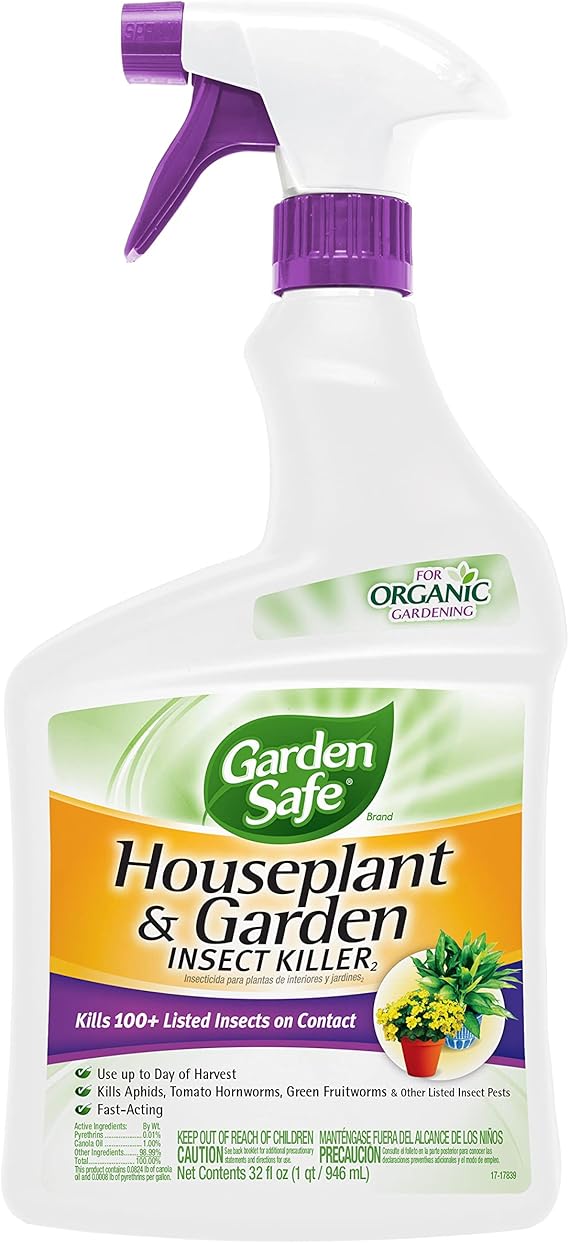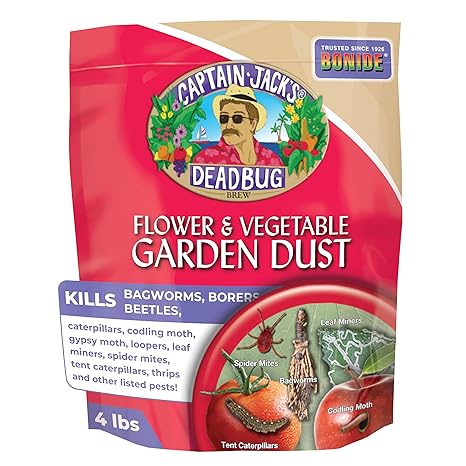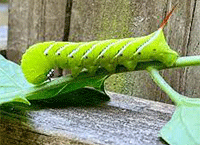Tomato worms can seriously threaten your tomato plants, rapidly feeding on leaves, stems, and even fruits. These large green caterpillars can quickly devastate your crop if not managed properly. Here's a comprehensive guide to help you identify, prevent, and effectively eliminate tomato worms from your garden.
Other Topics You Might Like
Helpful Products You Might Like

Sevin Insect Killer Concentrate

Garden Safe Houseplant and Garden Insect Killer

Bonide Captain Jack's Deadbug Brew Flower & Vegetable Garden Dust
"(Paid Links)" 
Identification
Tomato worms are notably large caterpillars that grow up to 4 inches long. Their bright green color and distinctive horn-like tail make them relatively easy to identify once you spot them. They also have white diagonal stripes running down their sides, making them look intimidating. Despite their fearsome appearance, the horn on their rear end is harmless. Their ability to blend in with the foliage often makes them difficult to see, so regular inspection is crucial.

Prevention
Preventing tomato worm infestations involves several strategies:
Companion Planting
Utilize companion plants such as basil, marigold, or dill near your tomatoes. Basil and marigolds can repel worms, while dill attracts beneficial insects that prey on these pests.
Regular Inspection
Regularly check your tomato plants, especially the undersides of leaves, for eggs and larvae. Early detection can help prevent a minor problem from becoming a full-blown infestation. Look for tiny, green eggs or small caterpillars before they grow large enough to cause significant damage.
Maintain Plant Health

Healthy plants are more resistant to pests. Ensure your tomato plants receive adequate nutrients and water to maintain their strength and resilience.
Natural Control Methods
Handpicking
Handpicking is one of the simplest and most effective methods for controlling worms. Wear gloves and manually remove the caterpillars from your plants. Drop them into a bucket of soapy water to kill them. Check your plants regularly, as new hornworms may appear.
Beneficial Insects
Encourage or introduce natural predators such as parasitic wasps. Wasps like Cotesia congener lay their eggs on worms. The larvae of these wasps feed on the worm, ultimately killing it. Attract birds to your garden as well; they are also effective at preying on worms.
Neem Oil
Neem oil is a natural pesticide derived from the neem tree. It disrupts the life cycle of worms by interfering with their feeding and reproduction. Mix neem oil with water and a few drops of dish soap, then spray it on the affected plants. Reapply every 7-10 days or after heavy rain.

Biological Control
Bacillus thuringiensis (Bt)
Bt is a naturally occurring bacterium that specifically targets caterpillars, including tomato worms. It is safe for humans, pets, and beneficial insects, making it an environmentally friendly option. Apply Bt according to the product label instructions, ensuring thorough coverage of your plants.
Chemical Control
Chemical insecticides can be effective but should be used as a last resort due to their potential impact on beneficial insects and the environment. If you choose to use chemical treatments, follow the manufacturer’s instructions carefully and consider their effects on pollinators and other non-target organisms.
Maintaining a Healthy Garden
Soil Health
Strong plants start with healthy soil. Enrich your soil with compost or organic matter to improve its fertility and structure, which helps plants resist pests more effectively.
Crop Rotation
Rotate your crops each season to reduce the likelihood of worm infestations. Avoid planting tomatoes in the same location year after year to break the pest lifecycle.
Garden Hygiene
Remove and dispose of any plant debris or old crops, as these can harbor pests. Keeping your garden clean reduces the chances of re-infestation.
Conclusion
Managing tomato worms requires a combination of identification, prevention, and control methods. Implementing these strategies protects your tomato plants from these destructive pests and ensures a healthy, productive garden. Regular monitoring and prompt action are key to maintaining control and thriving your tomato crop.
